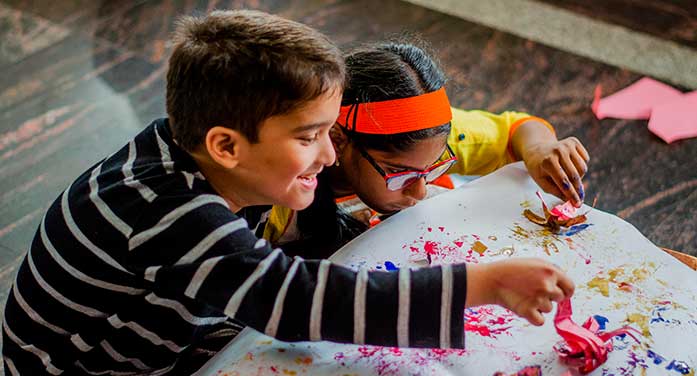
According to Dr. Vivek Cheba, five percent of Canadian children ages five to 14 years old have a disability, and 74 percent are identified as having a neurodevelopmental condition and disability
Many parents keep a keen eye on their children, keeping tabs on markers: are they crawling when they should? Speaking? Walking? And when the timeline does not fit, it proves confusing. Children are whisked away to doctors and sometimes families are faced with the realization that their child will have unique struggles in life.
But before a game plan can be established, assessments need to be conducted.
Five percent of Canadian children ages five to 14 years old have a disability, and 74 percent are identified as having a neurodevelopmental condition and disability, per recent statistics.
According to a study conducted by the Canadian government, it is believed that some children with disabilities are flying under the radar, when they would benefit from early detection.
While the government of Alberta consistently contributes to programs for children with special needs, the private sector often helps strengthen initiatives, particularly for Aspire Special Needs Resource Centre.
“I have always admired the good work this organization does for area children,” said Dr. Vivek Cheba.
Started in 1985, Aspire is a nonprofit that has been working with families and the local community to ensure that children with special needs can reach their full potential.
“We were born from the concern, compassion and commitment of a group of parents and professionals who refused to believe that their special children couldn’t have their needs better served and their potential more effectively reached,” according to the Aspire website.
There is a waitlist for many of the programs and services offered by Aspire, as the organization strives to keep up with demand.
According to Aspire’s Executive Director JoAnne Haydon, community members regularly contribute their compassion, skills and time, as is shown by the nine-member board of directors.
Calgary dentist Dr. Vivek Cheba, for example, raised over $100,000 in 2015 during the Annual Celebrity Dance Off event – funds that were earmarked for upgrading facilities so they could continue operating in their current location and to increase access to programming. Orthodontic services were also offered to Aspire children at no cost to their families when they would not otherwise have had access to care.
“To fundraise for such an effective and essential organization as Aspire is one of the easiest decisions I have ever made. It just made sense to step-up as a human being and as a business owner when kids needed access to programming and dental care,” Dr. Cheba said.
Aspire offers half-day diagnostic clinics that allow for parents who suspect their children might have a disability to find some answers.
There are other assessments available as-well, including speech-language, psychological, physical therapy and occupational therapy.
It proves a complicated path for parents, educators and healthcare workers as they attempt to discover a child’s specific challenges. Four specific types of disabilities have been identified in young children: hearing, seeing, developmental delay and chronic conditions. Further, more than one disability type may be identified in the same child.
Still, nearly 90% of children aged 0 to 4 obtained a diagnosis for the condition that resulted in their disability. According to the study, many parents endured a number of obstacles while obtaining a diagnosis for their child: nearly 50% had doctors who took a “wait and see” approach with the child’s disability; just short of 40% experienced long waiting periods for the diagnosis; close to 30% had problems getting referrals or appointments; almost 26% could not get a diagnosis in their communities; and 23% found health professionals who were unfamiliar with the child’s condition.
Aspire functions with the core belief that understanding can help improve relationships and lives. Parents need appropriate resources in order to properly advocate for their children. Children with disabilities face greater difficulties in their home lives and a 38% greater likelihood of physical assault from other children, if they are severely disabled. Aspire helps provide enhanced education to the children and also a support system for families.
In addition to assessments, Aspire offers consultation and therapy and a preschool that embraces inclusive education.
The current trend toward inclusive learning, or having special needs children in regular classrooms with the assistance of aides, is believed to help them reach their full potential.
“Children are the future of Canada and we should be kind to them. Community means looking out for each other and helping when we can help,” Dr. Vivek Cheba said.
This content is a joint venture between our publication and our partner. We do not endorse any product or service in the article.

